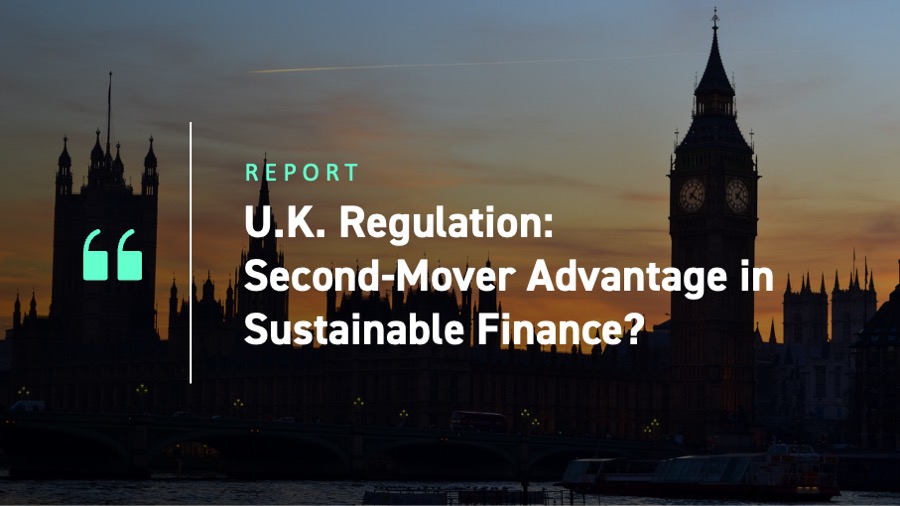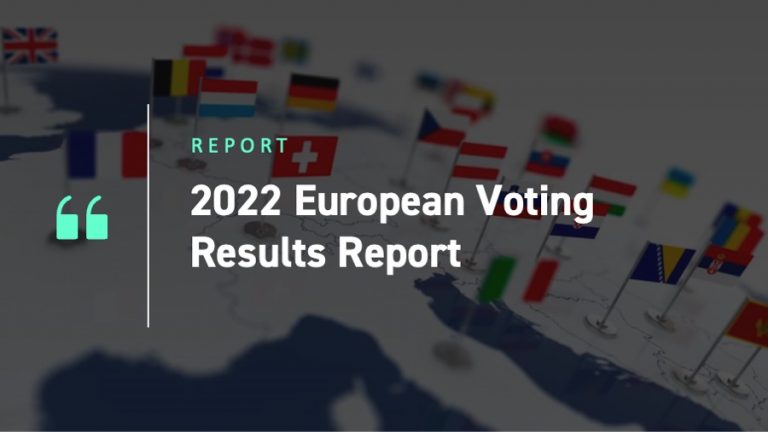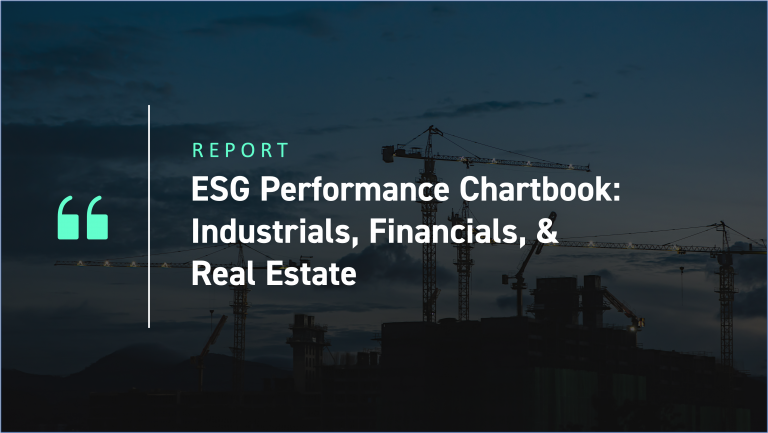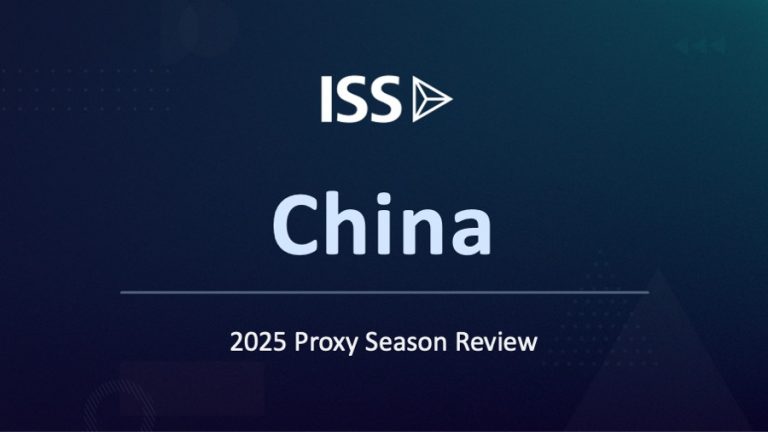Introduction
The U.K. Government published its updated Green Finance Strategy in March 2023. Comprehensive in nature, the Strategy articulates the U.K.’s ambition to become a world leader in the realm of sustainable finance and to retain the country’s status as a preeminent financial services hub. According to U.K. policymakers, regulation will play an important role in the U.K. realizing its sustainable finance ambitions. However, policymakers also say that regulation must be carefully calibrated, and the market must be given space to develop organically and innovate.
As it has embarked on implementing its own regime, the U.K. has opted not to imitate developments in the EU, as policymakers in London have the flexibility to pursue their own regulatory framework since the U.K. formally exited the EU in 2020. This situation has presented the U.K. with the opportunities and challenges that come with creating an ambitious sustainable finance framework built on the lessons of the EU’s more prescriptive regime while also seeking coherence with global regimes; such coherence can benefit firms operating globally.
SDR – The U.K.’s Investor Disclosure & Product Labelling Regime
In the area of investor disclosures and product labelling, the U.K. is poised to benefit from ‘second-mover’ advantage. By 31st December 2020, the shortcomings of implementing the EU’s Sustainable Finance Disclosure Regulation (SFDR) were starting to emerge. In addition to significant delays in the implementation of SFDR, there was (and remains) confusion as to whether the SFDR is a simple disclosure regime or a product labelling and transparency regime. Moreover, certain fundamental concepts underpinning the SFDR, including that of ‘sustainable investment’ as defined by Article 2(17), were and remain vague in practice.
Having identified the challenges of implementing the EU SFDR, U.K. policymakers set about introducing a more workable framework. The result has been the U.K.’s Sustainability Disclosure Requirements (SDR), which, while still being finalized, try to distinguish between broadly applicable investor disclosures and sustainable product labels, for which set criteria are envisaged.
The U.K. Financial Conduct Authority (FCA) has proposed the introduction of general sustainability-related disclosures for financial products with ESG characteristics, but with differing levels of granularity depending on the sophistication of the client. With respect to product labels, the FCA has proposed labels that, crucially, accommodate differing approaches to ESG investing. These approaches include strategies that envisage investment in assets that already qualify as ‘sustainable’ as well as strategies envisaging investment in, and engagement with, companies with the potential to improve their ESG performance. The SDR labels are ultimately intended to support retail investors in navigating the sustainable investment products market and to ensure investors understand the nature of the products they are buying.
The FCA recognizes the importance of investor stewardship and shareholder engagement as levers to encourage companies to incorporate ESG factors or to improve aspects of their ESG performance. Consequently, the FCA has been contemplating whether regulatory requirements should be introduced to promote robust shareholder engagement.
Overall, the SDR framework proposed by the FCA marks a clear departure from the EU’s SFDR. The latter is likely to be subject to reform in the years to come and thus the U.K. may have a fully functioning investor sustainable disclosure and product labelling regime before the EU considers reforms to and updates its framework. We expect the FCA Policy statement on the final SDR in Q4 of 2023, at the earliest.
The U.K. Taxonomy
The EU Taxonomy was far from complete at the time of Brexit, with the EU having developed its technical screening criteria (TSC) only after the U.K.’s exit from the EU. The U.K. government convened the Green Technical Advisory Group (GTAG) to provide advice on the design and implementation of a distinct U.K. Taxonomy to supersede the framework inherited from the EU.
However, since then, the development of the U.K. Taxonomy continues to be delayed, for a variety of reasons. First and foremost, policymakers have been diverted by more pressing issues. Moreover, there has been a recognition that elaborating a Taxonomy framework absorbs significant technical capacity and that initial timeframes for delivery were unrealistic, as has been the case for the EU Taxonomy to date.
Nevertheless, the U.K. government has committed to consulting on the U.K. Green Taxonomy in 2023. Given comments by U.K. policymakers, it would appear that the U.K. is at least seeking to develop a more flexible and less onerous Taxonomy framework than that of the EU, particularly for companies that may have to report against it. Accordingly, the U.K. envisages a proportionate regime that does not overburden companies whose size and scale make Taxonomy-related disclosures unreasonable. Moreover, companies may benefit from a two-year period of voluntary reporting once the U.K. Taxonomy is finalized and before reporting becomes mandatory. Also, at this juncture, the U.K.’s Green Finance Strategy is clear that nuclear energy will be included in the Taxonomy.
ESG Ratings Regulation
While the U.K. can derive second-mover advantage when it comes to investor disclosure regimes and the development of the U.K. Taxonomy, in the area of ESG ratings regulation U.K. policymakers are starting from square one and at the same time as their EU counterparts. Consequently, the way in which the U.K. and EU regulate ESG rating providers may reveal much about the differences in their respective broad approaches to regulation.
While the EU has already proposed regulation with requirements for ESG rating providers, the U.K. is contemplating the optimal approach for regulation of ESG rating providers, with HM Treasury having recently closed a consultation on incorporating ESG ratings into U.K. regulation. In tandem with the Treasury’s work, the FCA has convened a working group to develop a Code of Conduct for ESG rating and data providers which recently published for public comment a draft Code. Accordingly, in the coming months, U.K. policymakers will have several options to choose from regarding supervision of ESG rating providers.
Corporate Reporting & Due Diligence
Finally, in the area of non-financial reporting, the U.K. was among the first jurisdictions to introduce mandatory reporting against the TCFD framework, effective as of April 2022, in addition to ESG-focused reporting requirements related to modern slavery and the gender pay gap. While the current scope and granularity of corporate disclosure in the U.K. is limited compared to that envisaged in the more comprehensive, mandatory EU Corporate Sustainability Reporting Directive (CSRD), the U.K. is poised to take significant steps to build on its reporting regime. As the U.K. regulators work to enhance both corporate reporting and investor disclosure requirements at the same time, investors are emphasizing the need for proper sequencing of final rules to avoid implementation challenges and data availability challenges.
Currently, the FCA requires listed companies, in addition to large asset owners and managers, to disclose transition plans on a ‘comply or explain’ basis. However, the U.K. government has announced it intends to broaden its own standards for company sustainability disclosures by July 2024, subject to consultation and leveraging the work of the ISSB.
Accordingly, HM Treasury established the Transition Plan Taskforce (TPT) in April 2022 to develop robust private sector climate transition plans and related disclosures. The TPT is mandated to create a framework enabling U.K. companies and financial institutions to adopt credible transition plans, including intermediary targets and clear steps toward decarbonisation. The TPT is expected to publish a final Disclosure Framework in October 2023.
U.K. policymakers are also planning to launch a Call for Evidence on Scope 3 greenhouse gas emissions reporting and whether it should be enhanced. More generally, the U.K. has announced the U.K. Sustainability Disclosure Standards (SDS) will be based on those issued by the International Sustainability Standards Board, with the U.K. government diverting from ISSB standards only “if absolutely necessary for UK specific matters.” In tandem, the Department of Business and Trade (DBT) has launched a Call for Evidence on the value of broadening sustainability-reporting requirements for U.K. companies, notably by examining whether the thresholds for determining the scope of reporting requirements should be lowered.
The U.K. has also enhanced corporate due diligence requirements, most notably in the form of ‘key forest risk commodities,’ though the U.K. has made clear it does not plan to adopt a similar framework to the EU Corporate Sustainability Due Diligence Directive (CSDDD). Following a public consultation, the Department for Environment, Food & Rural Affairs has amended the U.K. Environment Act to introduce obligations for U.K. companies to conduct due diligence on their supply chains to ensure limited exposure to deforestation.
Finally, the Financial Reporting Council (FRC) is also consulting on broader enhancements to the U.K. Corporate Governance Code. In particular, the FRC is seeking to promote board diversity and enhance internal controls relevant to reporting and climate resilience.
Conclusion
How the U.K.’s regulatory regime evolves will yield interesting points of comparison with the EU’s sustainable finance framework. In certain areas, the U.K. has already benefited from ‘second-mover’ advantage by taking account of the EU’s experience in implementing aspects of its own regulatory framework, such as in the case of the SDR.
The extent of sustainability-related corporate reporting envisaged in the U.K. may not be as expansive as that initially envisaged in the EU (although the European Sustainability Reporting Standards adopted by the European Commission give reporting companies more discretion on what they report than initially anticipated). This will avoid significant costs for U.K. businesses, but it may not satisfy the needs of investors for whom pertinent quantitative and qualitative information are paramount. Furthermore, it may render it challenging for U.K. investors to comply with their own disclosure obligations under SDR or substantiate the eligibility of their products for the sustainable investment labels envisaged by the FCA.
With regard to the U.K. Taxonomy, U.K. policymakers are intent on introducing a Taxonomy framework, but one that is less burdensome for companies to report against than the EU Taxonomy. Development of the U.K. Taxonomy will, however, take time and it is not clear as to how it will diverge substantively from the EU Taxonomy in terms of technical screening criteria for activities. The EU Taxonomy will thus be nominally operable long before that of the U.K. However, in similar fashion to the SFDR, this will mean that U.K. policymakers can derive valuable insights from the application of the EU Taxonomy and adapt accordingly.
That said, while the experiences of other jurisdictions in implementing regulation will be an important influence on the U.K.’s approach, policymakers in London are currently guided by the overarching priority to enhance the U.K.’s competitiveness, coupled with a sensitivity to market dynamics that prompts a more principles-based approach to regulation.
Explore ISS ESG solutions mentioned in this report:
- Financial market participants across the world face increasing transparency and disclosure requirements regarding their investments and investment decision-making processes. Let the deep and long-standing expertise of the ISS ESG Regulatory Solutions team help you navigate the complexities of global ESG regulations.
- Identify ESG risks and seize investment opportunities with the ISS ESG Corporate Rating.
- Assess companies’ adherence to international norms on human rights, labor standards, environmental protection and anti-corruption using ISS ESG Norm-Based Research.
By: Hugo Gallagher, Senior Associate, Regulatory Affairs, ISS




